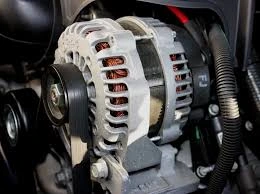Why Won’t My Car Battery Hold a Charge
Updated: January 1, 2025
23
Introduction
My Car Battery Hold a Charge,A car battery that won’t hold a charge can be frustrating and inconvenient. This issue can disrupt daily routines and signal underlying problems in your vehicle. Understanding the root causes is essential for effective troubleshooting and ensuring your car runs smoothly.
How a Car Battery Works
Car batteries are designed to store electrical energy and supply it to start your vehicle and power accessories. Typically, they rely on a chemical reaction between lead plates and an electrolyte solution. Proper maintenance ensures they function optimally.
Common Symptoms of a Failing Battery
Signs that your battery might not hold a charge include dim headlights, slow engine cranking, and frequent jump-starts. If your battery dies repeatedly, it’s time to investigate further.
Faulty Alternator: A Common Culprit

The alternator’s job is to recharge the battery while the engine runs. A failing alternator can lead to an undercharged or completely dead battery. Testing the alternator with a multimeter can help confirm the issue.
Parasitic Drain on Your Battery
A parasitic drain occurs when electrical components continue to consume power even when the car is off. This could be due to faulty wiring, a malfunctioning accessory, or failing relays.
Corroded or Loose Battery Connections
Poor connections at the battery terminals can prevent proper charging. Corrosion, dirt, or loose cables can impede the flow of electricity, resulting in a battery that won’t hold a charge.
Extreme Weather Conditions and Their Impact
Extreme heat or cold can negatively affect your battery’s performance. High temperatures accelerate fluid evaporation, while freezing weather reduces the battery’s ability to deliver power.
The Role of Battery Age
All batteries have a limited lifespan, typically 3-5 years. An old battery may struggle to hold a charge due to natural wear and tear on its internal components.
Overcharging: A Silent Battery Killer
Overcharging can damage the battery’s cells, reducing its capacity to hold a charge. This often happens when using an incompatible or faulty charger.
Incorrect Usage of Electrical Accessories
Leaving lights, radio, or other accessories on when the engine is off drains the battery. Over time, this habit can weaken the battery’s overall performance.
Diagnosing the Problem with Diagnostic Tools
Modern tools like multimeters and battery testers can help identify whether the issue lies with the battery, alternator, or electrical system. Proper diagnostics save time and money.
Tips to Maintain a Healthy Car Battery
Regular maintenance, including cleaning terminals, checking electrolyte levels, and ensuring the battery is securely mounted, can extend its life and reliability.
Professional vs. DIY Solutions
While some issues, like cleaning terminals, can be fixed at home, others, such as alternator repairs, require professional expertise. Knowing when to seek help is critical.
When to Replace Your Car Battery
If your battery consistently fails to hold a charge despite troubleshooting, it’s time to replace it. Choose a battery that matches your vehicle’s specifications for optimal performance.
Preventing Future Battery Issues
Adopt good habits like turning off electrical components when the car isn’t running and scheduling regular check-ups. Prevention is key to avoiding battery-related problems.
Conclusion
A car battery that won’t hold a charge can stem from various issues, from a failing alternator to simple user errors. By understanding the causes and implementing preventative measures, you can ensure your vehicle remains reliable and road-ready.
Please Write Your Comments